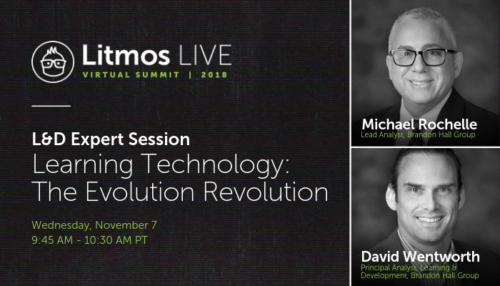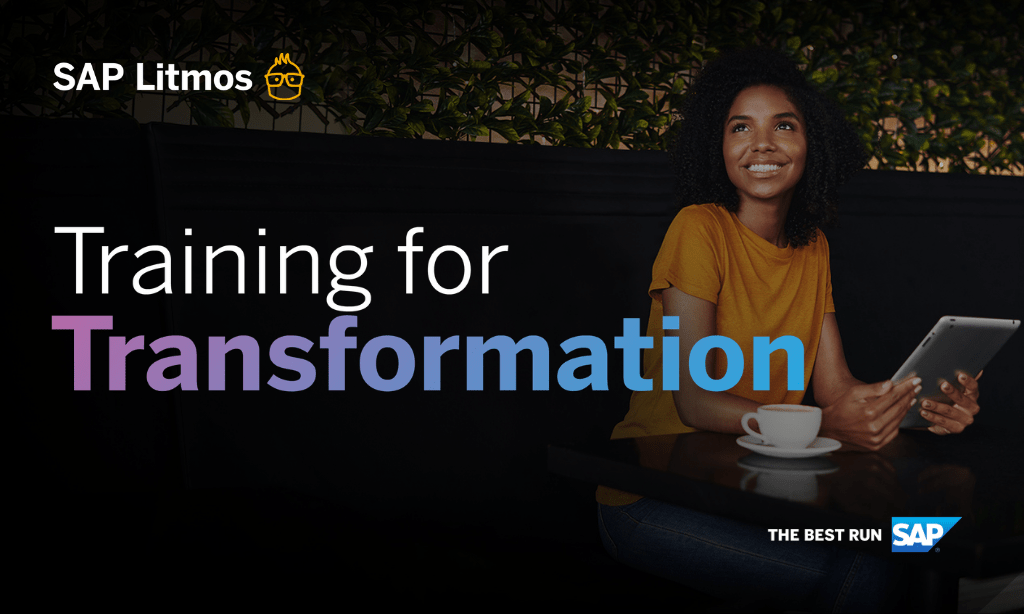Learning’s Revolutionary Evolution
Organizations are making their digital transformations and it is critical that learning takes a strategic role in this shift. But learning is going through its own metamorphosis and L&D will be how companies ensure its people also make the journey. Digital transformation requires a whole new skill set and new ways to deliver them.
Before I dig a little deeper into this transformation, I’d like to take a moment to invite you to join my colleague, Michael Rochelle, Brandon Hall Group’s Chief Strategy Officer, and me for our Litmos LIVE session: Learning Technology – The Evolution Revolution. In this talk, we’ll expound on the concepts introduced in this blog. It’s my intention that this article will get the wheels turning for you to want to hear more during the webinar discussion on Wednesday, November 7th.
Now, back to the subject at hand: the changes we’re seeing are dramatic and incremental, and are coming from every direction. Technology is changing; the amount and quality of data is changing; analytics requirements are changing and learner demographics are making a huge generational shift. All this (and more) is happening at the same time.
It is no longer about adopting a new technology, pedagogy or design framework. It is about fundamentally changing the way we approach learning.
Learning has never been great at keeping up with organizational change. The iPhone had been around nearly 10 years before we encountered the kind of mobile-ready learning we see today. The research around the 70-20-10 model is 20 years old but companies are only beginning to incorporate it into their learning strategies. The list goes on, and it is time the learning organization itself evolves so these changes are welcomed rather than feared.
Brandon Hall Group research shows that the shift is already underway for learning. When we look at the importance of learning initiatives, the two most critical priorities are increasing the amount of experiential learning and the amount of formal learning. There is also interest in using smaller content objects and converting to new modalities. All of this points to the necessity of reaching learners more frequently at their point of need. Traditional learning is detached from performance, so employees often take a negative view of learning and development because of this distance from their daily responsibilities.
Today’s technology environment exacerbates the challenge. People now expect instant access to everything. Whether seeking information or consuming media, nothing is further than a click or a tap. It’s not just Millennials. We all assume the answer to almost anything is mere seconds away. Corporate learning has been slow to keep up. We’ve continued to roll out classes and courses while many employees learn what they needed on their own from the Internet or through peers. We’ve been trying to sell 8-track tapes to people with Spotify accounts. That model is unsustainable.
It is time to imagine new roles and skill sets to support and accelerate learning. There will always be a need for classes and courses but companies must begin looking to web design, game development and user-experience competencies. The advent of AI and machine learning requires fresh skill sets, as well. Organizations must be ready to think beyond IDs and admins.
Again, there’s a lot more to be said on this topic, so please attend our Litmos LIVE session: Learning Technology – The Evolution Revolution.





